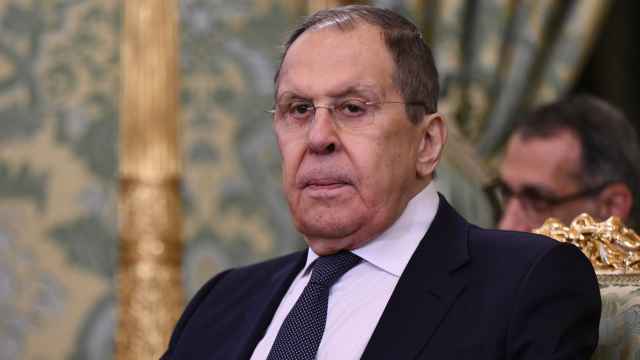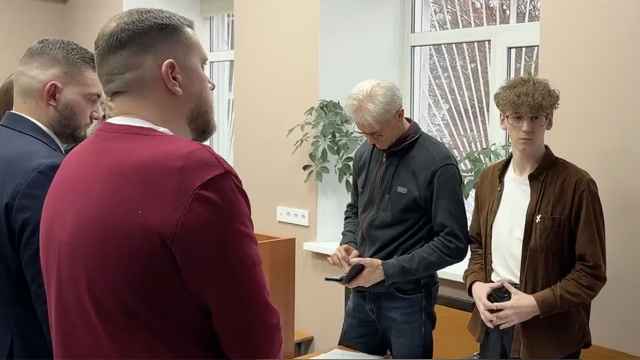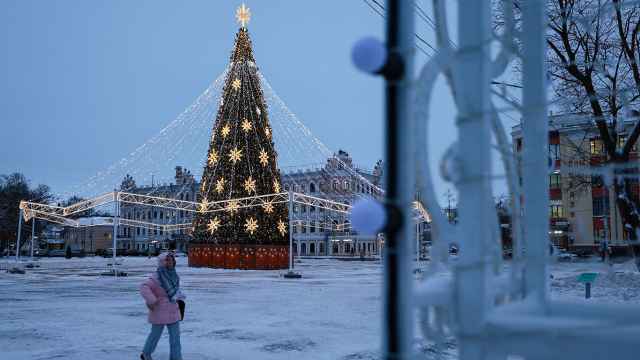Ukraine’s president pulled out of gas price talks with Russian leader Vladimir Putin at the last minute Tuesday, raising concern about the reliability of supplies to Europe before a Russia-EU summit.
The postponement revived memories of disputes between the two countries that led to reductions in the supply of Russian gas to Europe through Ukraine’s pipeline network in 2006 and 2009.
Viktor Yanukovych, whose country is a transit route for Russian gas, had been due to meet the Russian president in Moscow to try to secure a reduction in Ukraine’s fuel bill.
But Kremlin foreign policy aide Yury Ushakov said Yanukovych had postponed the talks because more time was needed to prepare documents they had planned to sign.
“Yanukovych had planned to visit today and it has been decided to delay this visit,” Ushakov said. “It is necessary to conduct additional expert work to complete all the documents that we had initially planned to sign.”
Putin is due to meet European Union leaders in Brussels on Friday, and energy is likely to be high on the agenda, but a repeat of what have become known as the “New Year gas wars” is not likely.
Cuts to European gas supply transiting Ukraine during earlier disputes exacted a cost for both countries, prompting Europe to step up an energy-security agenda, including reduction of transit risk and diversification of supply away from Russia.
Russia’s gas export monopoly Gazprom, an important contributor to the Russian state budget, depends on European exports for the majority of its revenues, while Ukraine depends on transit fees from Russia to fill its state coffers.
“I do not expect a new gas war. There might be some kind of information warfare,” Ukrainian political analyst Volodymyr Fesenko said.
“The visit has been postponed because they apparently failed to agree but I do not think this will lead to escalated tension. If we stick to the current agreements, and we will, there should be no escalation.”
While in Brussels, Putin will portray Russia as a reliable supplier and present his country’s case against EU open-market measures that Moscow says discourage investment in infrastructure that helps secure flows of gas to Europe.
Questions about compliance with equal-access rules hang over the South Stream pipeline project in particular. South Stream is to bring gas directly from Russia via the Black Sea floor to southeastern Europe, bypassing Ukraine’s transit network.
Ukraine, for its part, stands to lose transit revenues if South Stream goes ahead and could benefit from a standoff between Russia and the EU over the pipeline’s compliance with access rules.
“Ukraine has been complaining to the EU about Russia and its plans to build South Stream,” Valery Nesterov, an analyst with Sberbank investment research, said.
“Ukraine wants the EU to pour cold water on South Stream. I think there is no threat to Russian gas flows to Europe.”
A Message from The Moscow Times:
Dear readers,
We are facing unprecedented challenges. Russia's Prosecutor General's Office has designated The Moscow Times as an "undesirable" organization, criminalizing our work and putting our staff at risk of prosecution. This follows our earlier unjust labeling as a "foreign agent."
These actions are direct attempts to silence independent journalism in Russia. The authorities claim our work "discredits the decisions of the Russian leadership." We see things differently: we strive to provide accurate, unbiased reporting on Russia.
We, the journalists of The Moscow Times, refuse to be silenced. But to continue our work, we need your help.
Your support, no matter how small, makes a world of difference. If you can, please support us monthly starting from just $2. It's quick to set up, and every contribution makes a significant impact.
By supporting The Moscow Times, you're defending open, independent journalism in the face of repression. Thank you for standing with us.
Remind me later.





